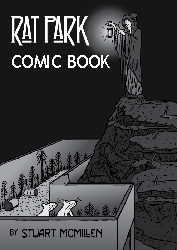Review: Globalization of Addiction by Akwatu Khenti
The Globalization of Addiction (GOA) is a well-researched account of prevailing forces of free market enterprise that are implicated in widespread patterns of addiction in western society. Alexander thoroughly documents the historical process whereby free markets dislocate people from sources of psychological, social and spiritual support, resulting in multiple forms of addiction. The book raises many questions, including implications for action arising from the analysis.
Historical dislocations set in motion to create free market society are described, including contemporary social processes that impact negatively on both rich and poor. The values that propel free market society have a profound impact on psychosocial integration. Inadequate psychosocial integration is shown to be a source of multiple addictions. Free markets are implicated in the increased prevalence of addictions worldwide, leaving the problem of how to circumscribe circumscribe either the markets and/or their impacts.
The GOA thesis disregards the growing acceptance of the bio-psychosocial model both in Canada and abroad. At present, this model guides many addiction intervention efforts. By ignoring it, biological consequences for increased risk of addiction in children of alcoholics, for example, could be downplayed.
Accounting for the means and mechanisms by which individuals and communities cope and/or are transformed by the process of dislocation would strengthen the analysis. For example, what do the coping mechanisms of communities that have experienced severe dislocation, without succumbing to disproportionate addictive behaviour, offer to the analysis?
A meaningful text
This book provides an important contribution to understanding the growing global burden of disease related to drug, alcohol and other addictions. It provides insights into the critical role between market forces and the growing prevalence of addictions within countries and regions that are adopting free markets despite bearing the brunt of inequitable trade and financial flows. It identifies links between several global determinants of health and a wide range of problem use and behaviour that serve as adaptive responses. The chapter on demon drugs is especially useful for calming inherent alarmist responses to new or emerging 'demon drugs'.
The book is an essential public health resource for those developing programs for special populations, including addiction therapists, managers and funding agencies. What the book does not do well is provide readers with a roadmap for action. Readers will not be certain about how to change their policy efforts and/or practice. It seems that the generation that distills the author's paradigm of dislocation will have to accept the further challenge of working with this paradigm at the front line.
Akwatu Khenti
Assistant Professor, University of Toronto Research at the University of Toronto, Director, International Health Programs, Centre for Addiction and Mental Health, Toronto, ON

